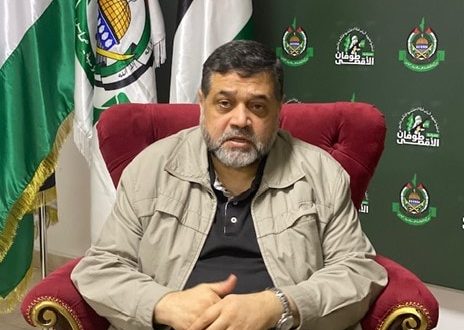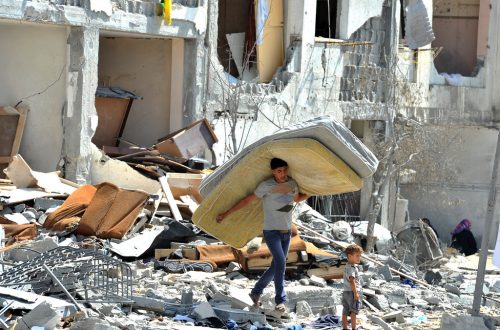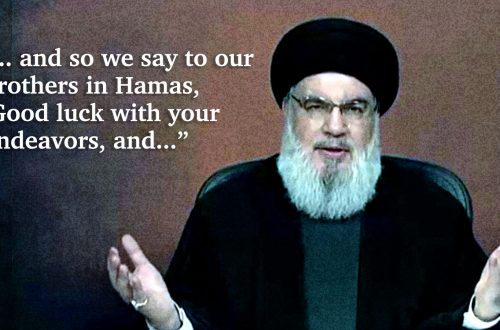This is a guest post by amie
For the Russell Tribunal on Palestine session held at the Law Society over the weekend, Israel’s guilt was never to be the elephant in the room. That elephant had already been buried under a boulder marked “Proved.” As Frank Barat, RT coordinator wrote in the Jewish Chronicle, “there is no need for us to hold any kind of investigation into Israeli war crimes (let alone a kangaroo court). These have been proved several times over by mainstream human rights organisations.”

Photo of Skippy: courtesy of Richard Millet, from an idea by me, thanks to anon for supplying and posing Skippy in a hit and run photoshoot before security tried to intervene
Such as? “Such as”, continues Barat, “Amnesty and Human Rights Watch, not to mention numerous UN resolutions and the UNHRC Goldstone report.”
Such a cavalier abuse of the term “proved” I expect from a gormless street protester parroting outside Ahava. I don’t know Frank Barat, but the “juror” Professor Dugard was a much admired mentor to a generation of international law students, including myself. At the concluding press conference, after Mansfield had pronounced the tribunal’s “verdict”, Dugard confirmed Barat’s approach, citing the International Court of Justice’s advisory opinion on the Wall, the Security Council, General Assembly and Human Rights Council as the basis upon which he “can’t stress enough that we are dealing with a criminal enterprise by Israel”. Listening to him felt like a betrayal of everything I thought we had in common regarding principled legal discourse and the rule of law.
The UN sources are of course highly politicised: The methodology of Human Rights Watch in determining war crimes has been criticised by its founder, Richard Bernstein, who points out that he is one of many now questioning its soundness.
The ICJ opinion is advisory only, and its content critiqued, bizarrely even within the opinions of some of its own concurring judges in the case. For Dugard et al to pronounce that Israel’s guilt of wide ranging war crimes and other illegalities is “clear” (a word he could not repeat often enough) especially when there has been no definitive adjudication on these matters, seems like hubris. Àt best, many, if not all of the multiplicity of issues are still moot in international law. Yet the entire weekend’s hearings proceeded from this unsafe premise, straight on to the next step of how to punish corporations “complicit” in Israel’s crimes.
The Tribunal’s website states that
The legitimacy of the Russell Tribunal on Palestine does not come from a government or any political party but from the prestige, professional interests and commitment to fundamental rights of the Members that constitute this Tribunal.
I invite readers to consider the CVs of many of the jurors of this self styled People’s Tribunal and assess (for are we not also the People) whether their “prestige” and other criteria come up to the requisite level.
Press TV asked Michael Mansfield at the Press conference what the jury did to ensure impartiality over the 2 days. He answered that although not a judicial inquiry, they were “quasi judicial” in the sense that it was held in public, transparent in terms of the materials, so that everyone could come and attend if they wished, or read the results of the questioning. They had attempted by “giving due notice and attending with due diligence to what is being said and giving everyone the opportunity to be heard, to give a semblance of a judicial inquiry.”
I will not even attempt to address why this disingenuous description (including the notices they gave to the corporations concerned to appear before them) falls lamentably short of due process. I will just mention that Kasrils told the audience that companies would have to prove their innocence and proceed to describe how this event failed even to live up to its claim of being open to all.
I registered online to attend 2 weeks before the event, received an email thanking me for registering and informing me I would get a Paypal request in 24 hours. This never happened, despite 4 reminder emails I sent in which I stated that I assumed this did not affect my registration, and that I would if necessary pay on the day. No response. I turned up, was told I was not registered, and offered to pay then and there. Was told sharply by a woman who said she was the ultimate authority in charge that this was not possible as it was a requirement of the Law Society that no one be admitted who was not pre registered and in possession of a registration number.
I asked if applicants were being vetted, and her reply was odd. “No, we are not vetting, we are even letting Richard Millet in.”
Why, I wondered, did she connect me with Richard, or even assume I knew the name?
I asked her to call Prof Dugard who I was sure would vouch for me. “The jury cannot be disturbed”, she said haughtily and swept off. Another assistant, seeing me lingering, inquired about the problem, said she was sure something could be done, and promised to tell Dugard at the coffee break.
When I returned at the break she had clearly been briefed, (could it have anything to do with my having subsequently greeted Richard in the lobby?) and recited coldly the mantra parroted by all the officials thereafter: no registration number, no admission, Lawsoc policy. She was “unable to facilitate” the request to speak to Dugard.
On Tuesday I called the head of venue hire at the Lawsoc. She told me there was no such policy. In fact she was “very surprised” to hear this, as the previous Tuesday, at a joint briefing of Tribunal organisers, Lawsoc, and lawsoc security, it was specifically discussed; that if someone came off the street and wanted to attend and pay at the door, the security person was to fetch a Tribunal organisor and it would be entirely within the organisers’ discretion whether to admit them.
So, not open to all of the People then, and this little deviousness not quite transparent.
Pity: I would have liked to have bumped into witness Dalit Baum of QUIT (Queers against Israeli Terrorism) at a coffee break, for instance, and asked her what she thought of the voting patterns at last week’s UN vote removing sexual orientation from protection against execution..
Someone who did attend the session found striking the differing levels of action demanded. Some “witnesses” sought action against Israeli companies operating in the territories, others against outside corporations aiding the Israeli presence in the territories. And then there was Ronnie Kasrils, who would be satisfied with nothing less than the destruction of the entire Israeli economy. As usual, it is the outsiders who incite the participants down a nihilistic path inimical to conflict resolution.
I watched some of the webcast instead, now available on the RT site.
The code pink women gave testimony about Ahava and then Dugard ventured an intervention. “I might just add”- and I waited for some judicial sagacity- “I might just add,” he cautioned, “ that should you engage sellers of Dead Sea products in conversation, you might find yourself being accused of being a fascist and a nazi. So, something to remember.”
I slumped back, depressed at the incongruous meanness of this intervention. Quite aside from the shoe being on the other foot when it comes to Nazi jibes, this petty banality belied the mask of lofty judicial aspiration.
The verdict was read out by Mansfield as the conclusion of proceedings which he announced as the “RT London session which took place at the Law Society” (despite the fact that the Law Society official had confirmed to me that they did request that the RT remove the Lawsoc name from their website, as “this event had nothing to do with us”. ) He solemnly read out:
“Israel’s continued impunity and disregard of its state obligations as a member of the United Nations and bound by the UN Charter, has set it apart from the rest of the international community”
There it is, an image redolent of ancient tropes: On the one side, there stands Sudan, Sri Lanka, China, and all the massed ranks of nations, and there on the other, cast out in its unique vileness, stands Israel.
Someone asked if the Tribunal might take up other Human Rights issues. Mansfield declared the Tribunal’s willingness so to do. Forgive me for my scepticism at this offer, but I can’t see the majority of the BDS industry being so easily distracted from the inquisitorial zealotry imbued in the image of Israel cast out from among the nations.
The RT event brochure with its pages and pages of CVs of jurors and witnesses and experts with all their orgs and committees which comprise this BDS industry, epitomises the depradation of the entire ecology of human rights activism and intervention, sucked dry by this obsessive preoccupation, so that even Amnesty International laments the apathy of the world to the 3 decades old scandalous plight of the Bhutanese refugees in Nepal. These people were ethnically cleansed from Bhutan, a country with the dubious distinction as generator of the highest per capita refugees in the world.
I don’t see the BDSers turning their energy to Bhutan anytime soon; there is still much to be done. Mansfield announced the next session in South Africa, which will be devoted to the Israel/ Apartheid issue.
Pierre Galand, who opened the London session, was one of the chief instigators of what became Durban 1, which unleashed the torrent of hate speech and acts we are now so familiar with.
Durban III beckons.


